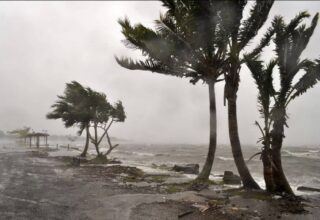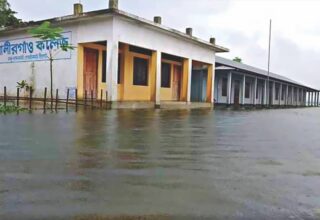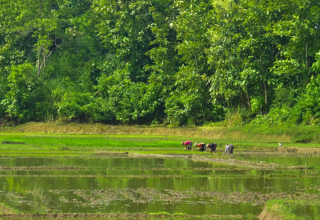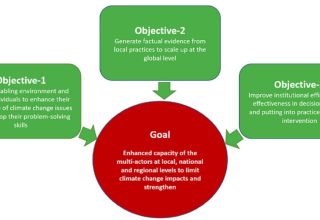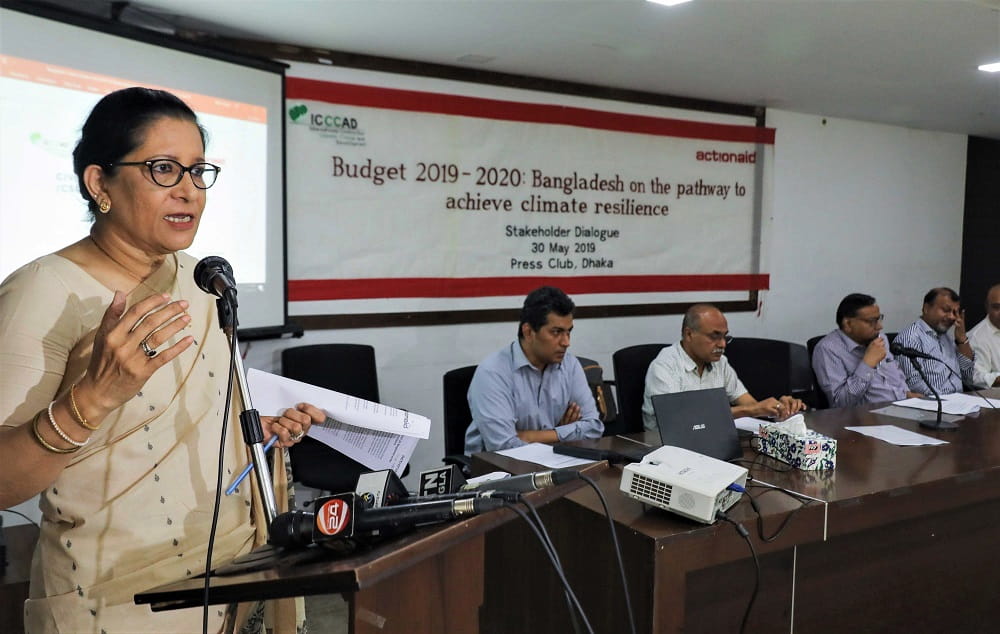
“These people mostly take shelter in Dhaka, which is currently in no position to absorb 10 million more people”
The government’s vision of turning Bangladesh into a climate resilient country by 2030 would be hard to achieve as climate migrants would affect the procedure, said environmental experts at a press briefing yesterday.
ActionAid and ICCCAD organized the conference titled National Budget 2019-20: Bangladesh on the Pathway to Achieve Climate Resilience at the National Press Club.
Climate change experts warned the government that if proper action is not taken to resolve the matter, the whole nation would have to “pay” for it.
Responding to a question, Saleemul Huq, director of International Centre for Climate Change and Development (ICCCAD) at the Independent University, Bangladesh (IUB), said that in a recent research, they found some 10 million people in the country might be forced migrate within the next two decade due to climate change.
“A special aspect of internal migrants of the country is that these people mostly take shelter in Dhaka, which is currently in no position to absorb 10 million more people,” he added.
The ICCCAD director recommended the government to take a preemptive measure and shift them elsewhere. “The government should create a migrant-friendly city, and provide the migrants with skill development training so that they can find jobs.”
In January this year, Bangladesh took its first step to becoming a climate resilient country by undertaking necessary measures aimed at achieving transformational adaptation to climate change impacts.
Saleemul also mentioned that Bangladesh’s adoption of the new Climate Change Strategy and Action Plan would now include climate migration, adding that “all would depend on how the government is acting on the issue.”
Farah Kabir, country director of ActionAid Bangladesh, said that being a disaster-prone country, Bangladesh has a looming internal migration problem, which can only be tackled through proper planning.
Earlier in the conference, Syeda Lamia Hossain, program officer of Climate Justice at ActionAid Bangladesh, said despite finding data on allocation of climate budget, they could not find any data on expenditure.
The Bangladesh government allocated a climate budget to six ministries for the first time in 2017, which increased to 20 ministries the following year.
ICCCAD Director Saleemul Huq said proper implementation of the budget “is more important than allocation,” and the government should observe how much the affected people were benefitting, if at all.
Moreover, the parliamentary committee on climate change needs to be more active in ensuring proper expenditure of the allocated budget.
Head of Emergency Preparedness and Response of Brac, Shashanka Saadi, said that few years back, the government had started participatory planning to ensure better allocation to the ministries, which “needs to be started again.”
He said the national budget needed to reflect what the local government was demanding in order to effectively tackle climate change.
Originally this news was published on May 31, 2019 at Dhaka Tribune.

